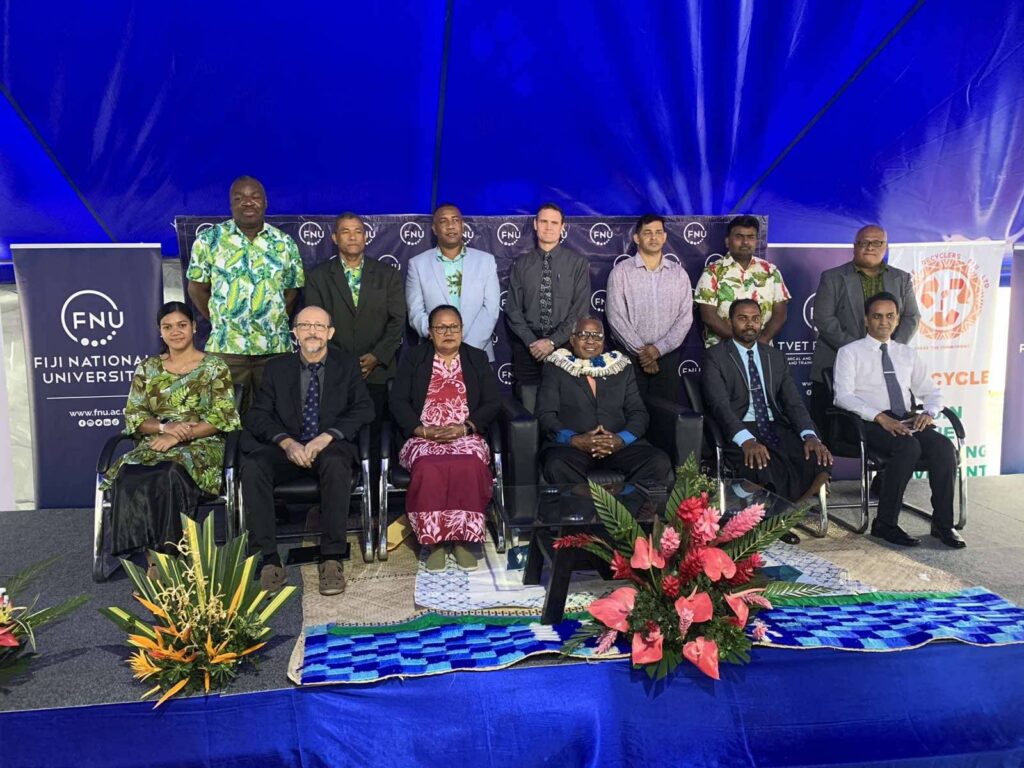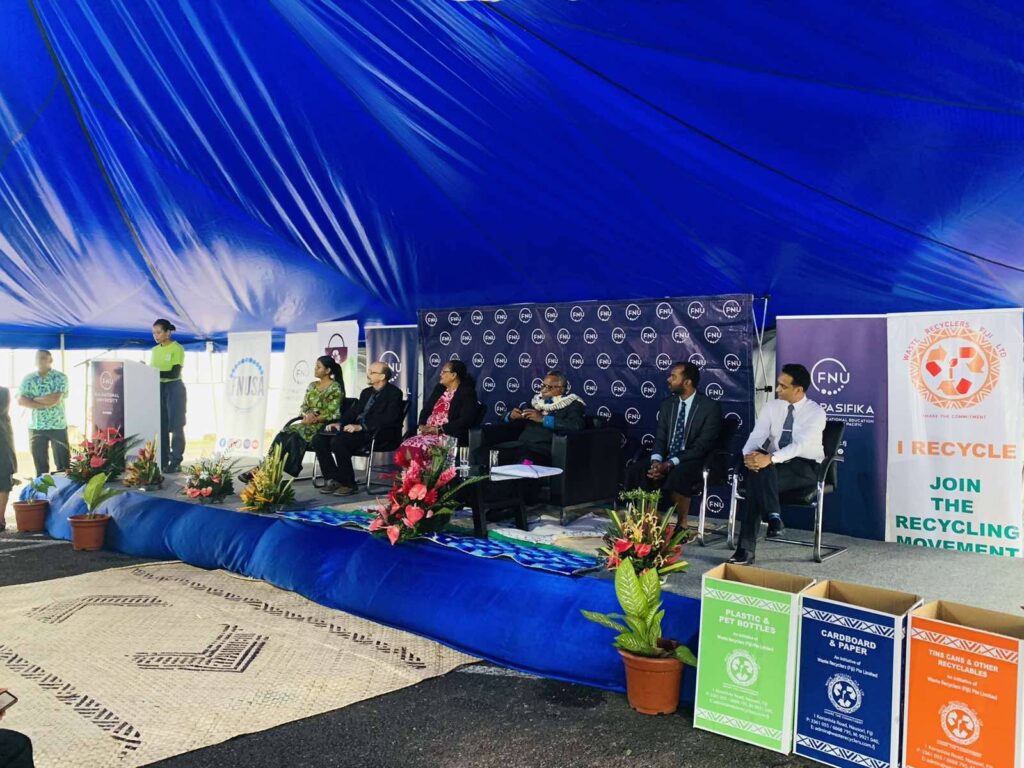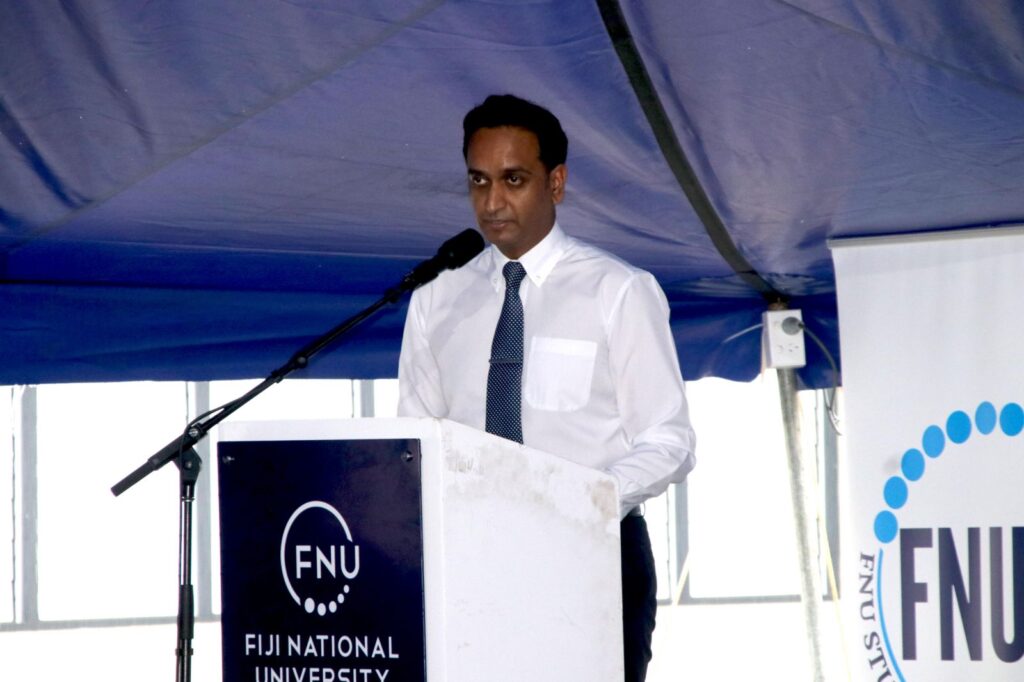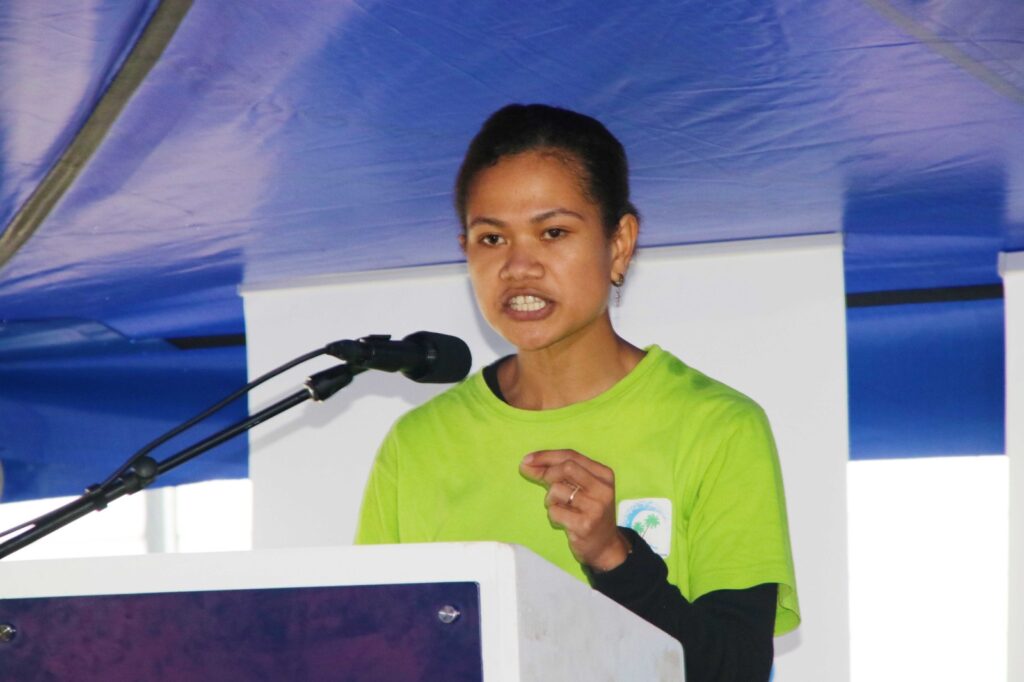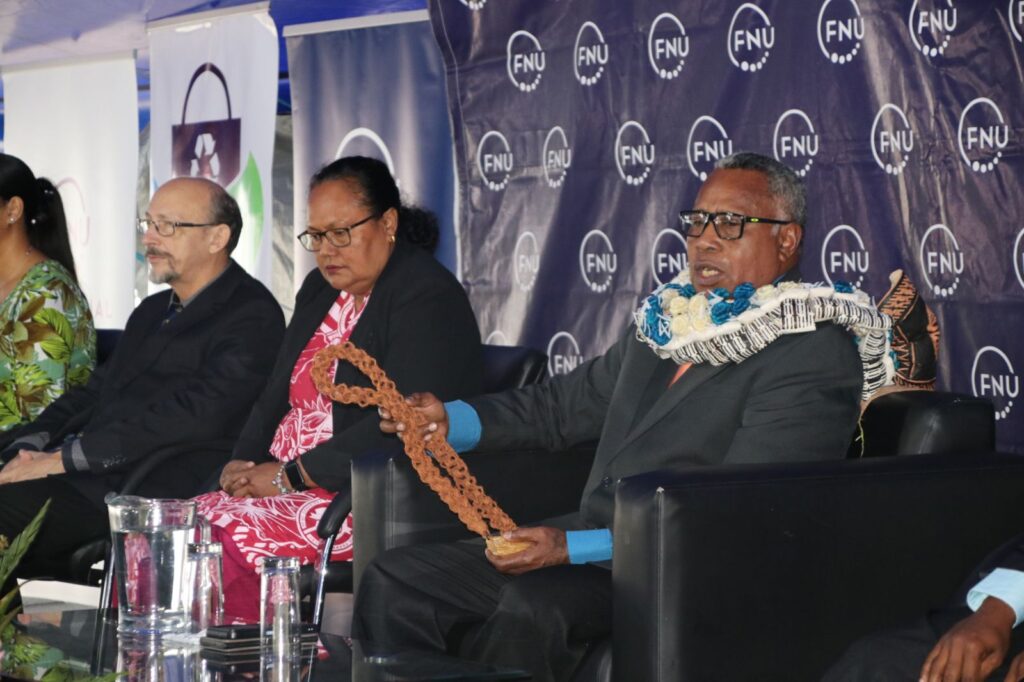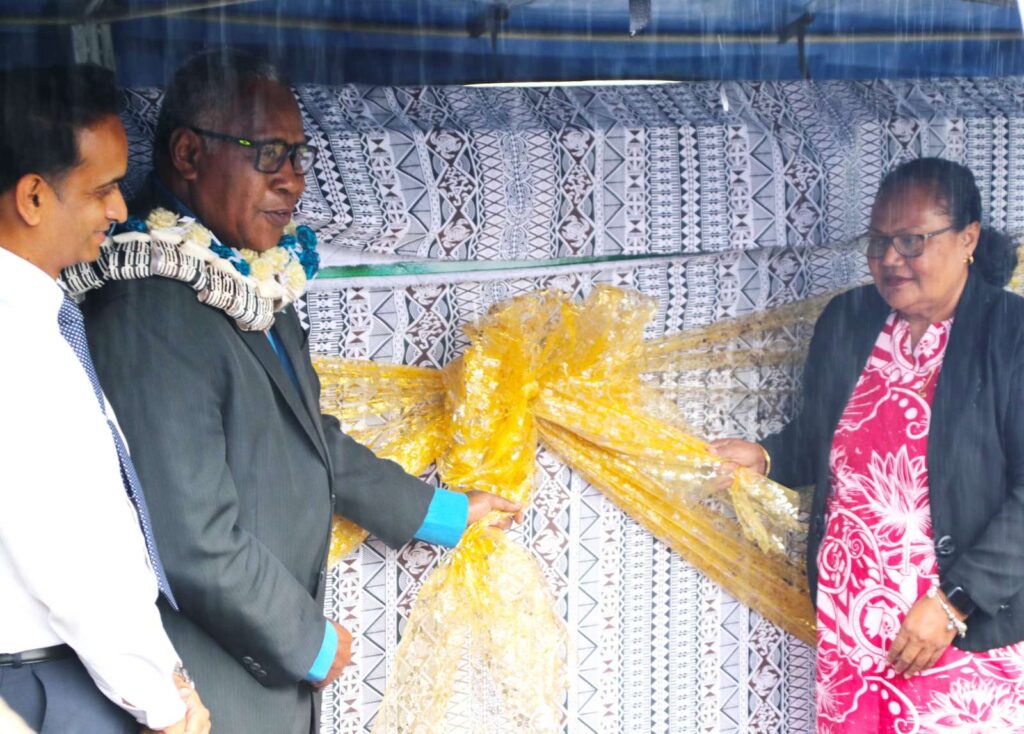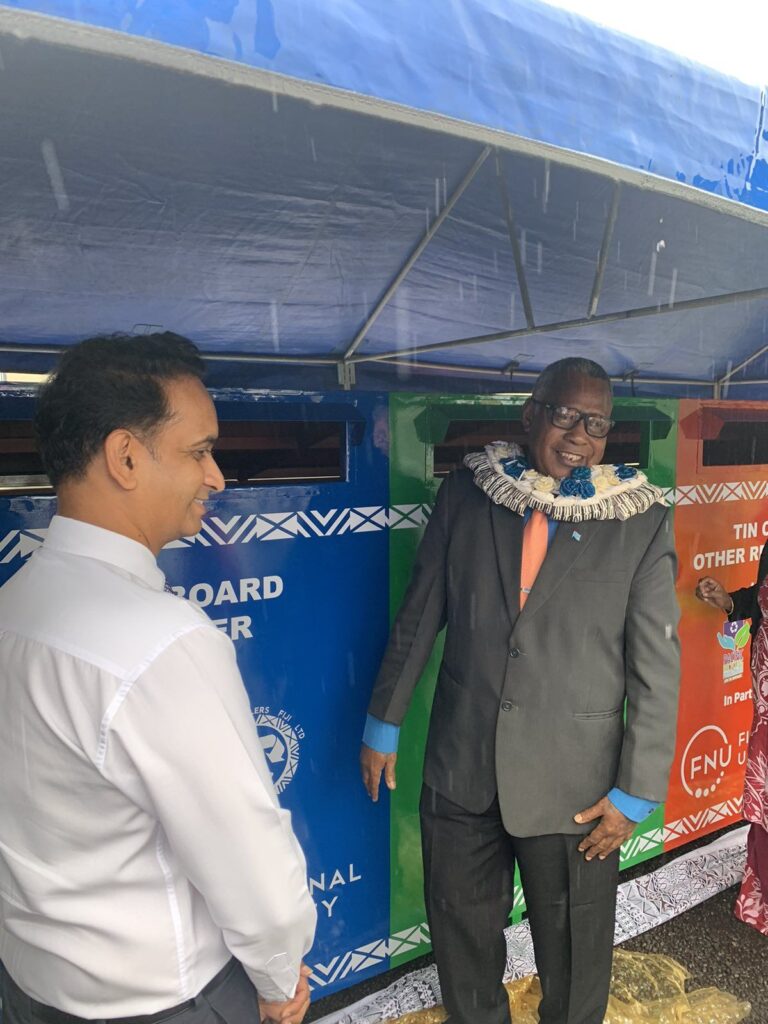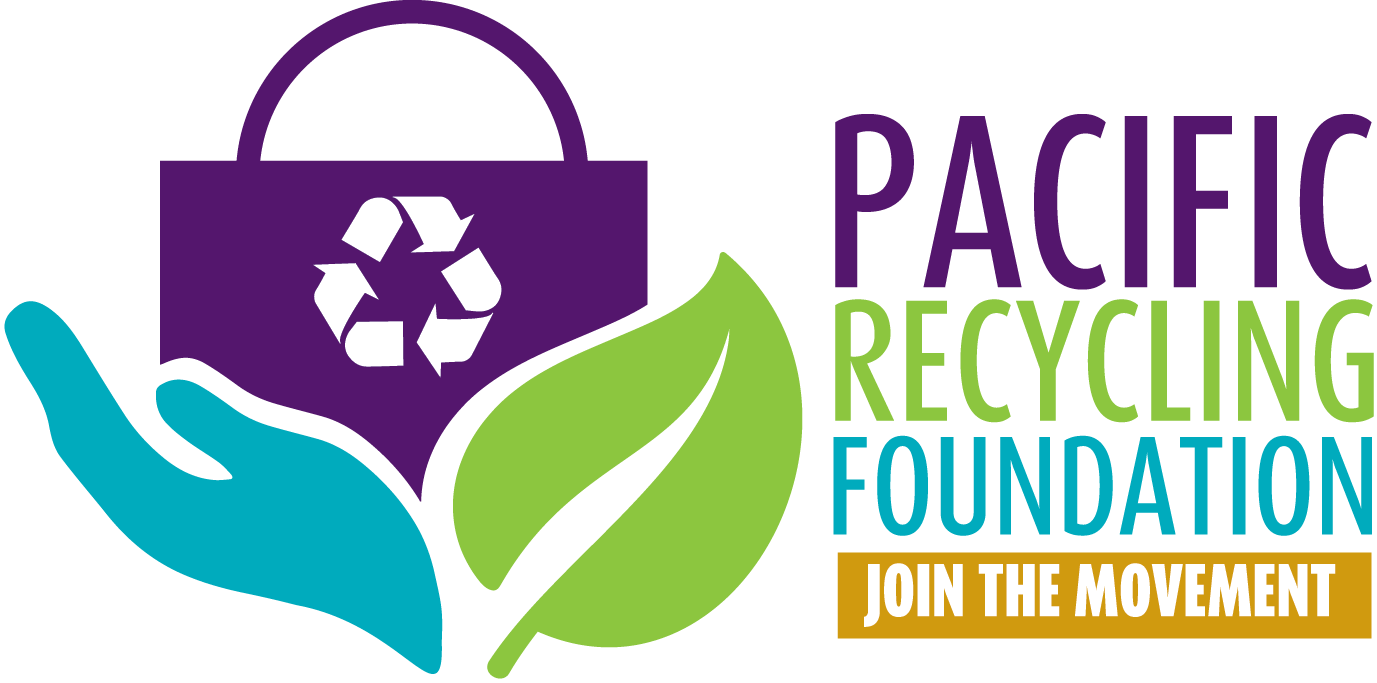FNU launches I-Recycle Hub in collaboration with WRFL & PRF
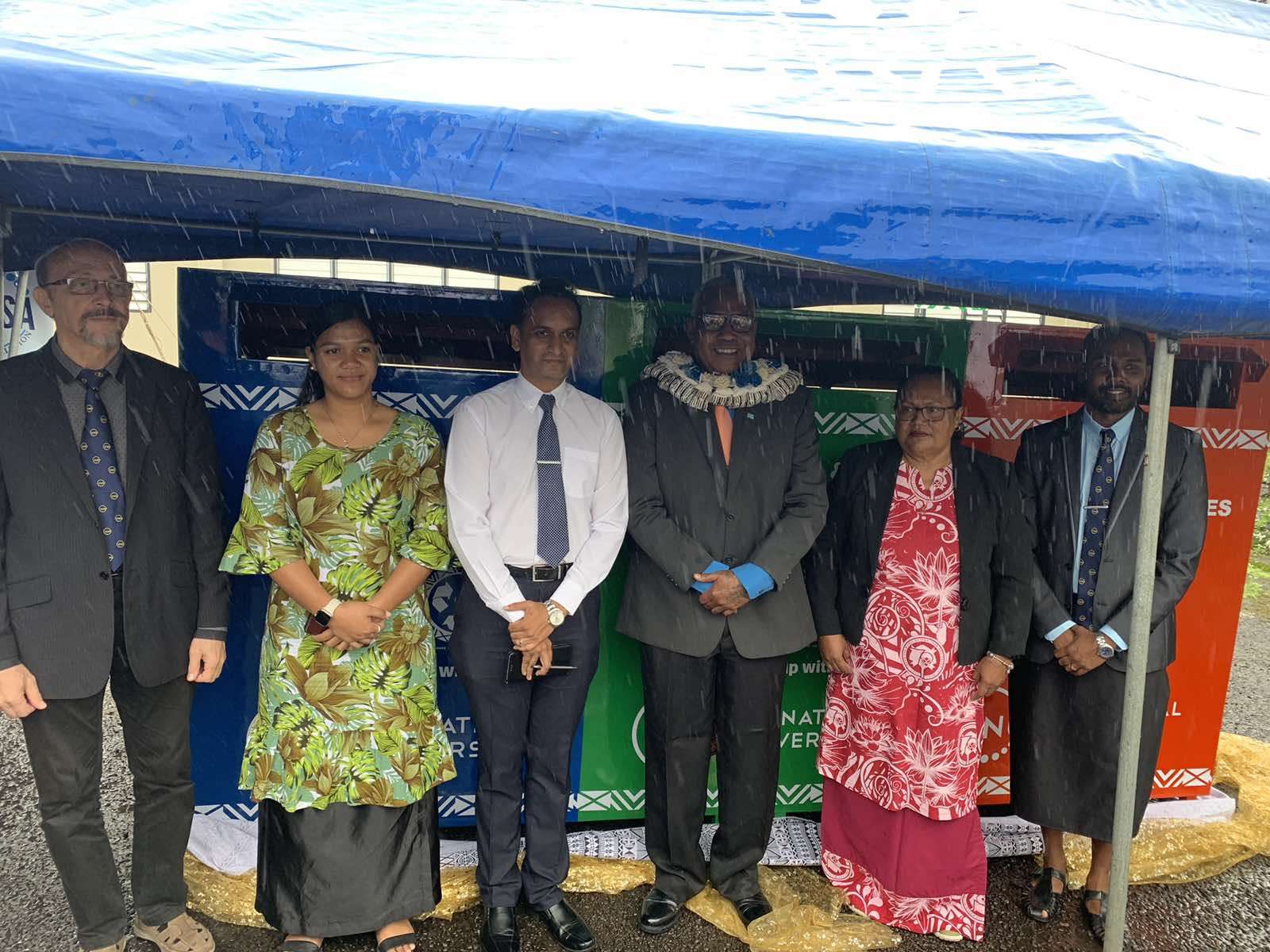
The Fiji National University (FNU) has launched the ‘I-Recycle Hub’ program, a fundamental tool for visible and practical participation in recycling, in collaboration with the Pacific Recycling Foundation and Waste Recyclers Pte Ltd (WRFL).
The program was officially launched at the FNU’s Derrick Campus in Samabula today.
The I-Recycle Hub program aims to establish a robust and efficient waste management system that emphasises sustainable processes and waste diversion from landfill and dumpsites. The program is also aimed at bringing individual ownership to recycling. By collaborating with Waste Recyclers Fiji Ltd and the Pacific Recycling Foundation, FNU is taking a crucial step towards creating a greener and cleaner Fiji.
The specially designed bins built by Waste Recyclers Fiji Ltd will be placed at pilot locations at the Derrick Campus and Natabua Campus in Lautoka.
Acting Pro-Vice-Chancellor Learning and Teaching, Dr Jimaima Lako said the launch marked a momentous occasion and a significant step towards a greener and more sustainable future at the Fiji National University.
“Together, through the I-Recycle Hub, we can transform how we approach waste management and resource consumption. By recycling diligently, we conserve precious natural resources, protect our surroundings, and set an example for others,” Dr Lako said.
“FNU has always been working for a sustainable tomorrow, and with this philosophy, the university is keen to introduce innovative measures in collaboration with our sustainability-oriented partners.”
“The Fiji National University recognises the adverse impacts of climate change experienced locally and globally. Our vulnerability to climate emergency is a wake-up call for all of us to commit to taking bold climate change mitigation and adaptive actions.”
“Therefore, by declaring Climate Emergency, the Fiji National University is committed to creating a more inclusive and resilient economy by reducing carbon emissions to restore our natural and built environment and people. Declaring a climate emergency thus acknowledges the concerns of many who are worried about what the future holds for them.”
The PRF’s Founder, Mr. Amitesh Deo said higher education institutions play a huge role in preparing students to be responsible citizens, encouraging fresh ideas, and envisioning what a better world could look like.
According to Mr. Deo, the PRF’s ‘I Recycle Hub’ program challenges the conventional view of recycling that it is a dirty and filthy industry and is supposed to be tucked away and hidden in the backyards.
“The I Recycle Hub Program is our response to the regular push-back from different sectors that recycling concepts or those involved in this space are not neat enough and thus must be hidden in the backyards,” said the PRF Founder.
FNU’s Capital Project and Infrastructure Director, Niranjwan Chettiar, added that the I-Recycle Hub is meant to be a well-functioning sustainable waste management system.
“We all understand life is full of challenges that must be transformed into opportunities. The only way to overcome global challenges is through partnerships and partnerships at all levels – individuals, communities, businesses, government organisations, non-government organisations, development partners, and countries,” Chettiar said.
“The I-Recycle Hub Programme is one of the effective measures undertaken to reduce waste, and FNU is thankful to Waste Recyclers Pte Ltd (WRFL) for bringing this program on board, which not only benefits the University in managing waste but the wider community and our key stakeholders that are our students as who play a key role in moving the notion of 3Rs – (Reduce, Reuse and Recycle).
Student Ambassador Olivia Bera expressed her commitment to a greener and more sustainable future.
“I strongly believe that if we treat our environment like a dumpster, it is the same thing as throwing away our very livelihood, life source, culture, and identity.
“This is the very reason why environmental sustainability is important. Recycling should be a norm because it protects the core of our native heritage – our Culture and Identity.”
